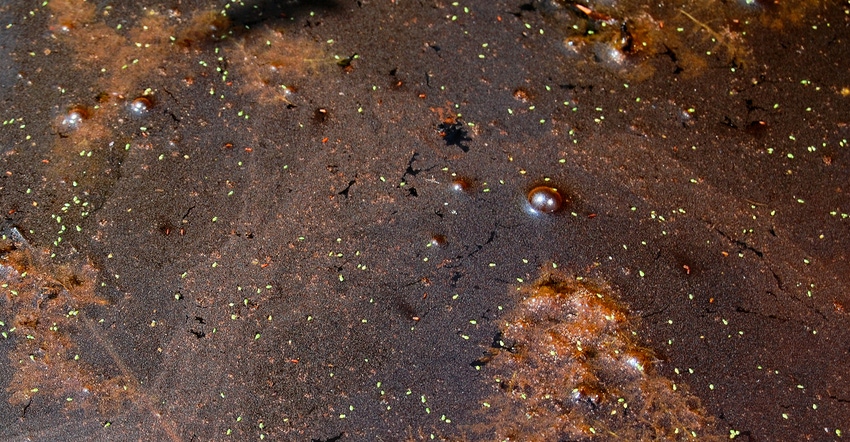
Ever tried wading through a wetland or swamp? As a kid, I swam in deep drainage ditches and survived blood-sucking leeches to tell the tale.
Things lurking in those waters can wrap around your legs, trip you up. If you’re bare-footed, mushy bottoms ooze around your toes and ankles, sucking you in deeper. You might even feel slippery critters gliding by or nipping you.
That’s the natural world’s swamp — much easier to wade through than today’s deeper, darker swamp of Washington, D.C. The politicized “Drain the swamp” cliché rightly originated in the National Mall, a wetland tiled-out circa 1791, but replaced by a humanized S.W.A.M.P. — Self-important With Authority, Money and Power.
Evidence of this surfaced during the ongoing legal battle of United States of America vs. Robert Brace and Robert Brace Farms. In brief, Pennsylvania’s Robert Brace and other “Swampbusted” farmers from Minnesota, North Dakota and South Dakota were caught in the Clean Water Act’s Swampbuster provision of the 1980s. Despite securing prior “commenced conversion” approvals from local USDA agencies, they lost use of once-farmed land due to shifting wetland criteria encouraged by outside special interests.
That same shifting Swampbuster provision resulted in extending the wetlands designation to another 30 acres of Brace Farms’ land in Erie County, Pa. The alleged taking is at the core of Brace’s argument raised in the U.S District Court of Western Pennsylvania last fall.
What was Uncle Sam hiding?
In October, Jeffrey Wood, U.S. acting attorney general, sought protective orders to prevent Lawrence Kogan, Brace’s attorney, from accessing government records and subpoenaing new testimony. He reasoned that the discovery requests were “aimed at challenging the settled facts, legal rulings, and judicial orders.” U.S. Magistrate Judge Susan Baxter didn’t buy it, ruling the discoveries could continue.
As reported in January (Farmer wins round in 31-year wetland legal battle) and February (Attorney clarifies Brace wetlands case against EPA) articles, Brace’s attorneys have built an extensive case of collusion and alleged lies by federal agencies and wildlife groups to “Swampbust” farmers.
The discovery confirmed extensive collusion and interference with local commenced conversion determinations by the U.S. Fish and Wildlife Service, U.S. EPA and Army Corps of Engineers. A 1990 U.S. General Accounting Office report noted: “These changes occurred for a variety of reasons, such as litigation by environmental groups and requests from special interests.”
Documents and subpoenaed testimony allegedly revealed the agencies intentionally interfered with, actively contested, then disregarded the Erie County USDA-ASCS Committee’s CC determination for the two commenced-converted Brace fields, says Kogan. The actions were pushed by the Wildlife Management Institute, National Wildlife Federation, Ducks Unlimited and other special interest groups. Reason: Wetlands were and are important to the migratory patterns of ducks and geese.
No hearing is scheduled yet.
This is just history, right?
Not so, warns Kogan. Merely delaying implementation of the “Waters of the U.S.” rule extending EPA and the Corps’ already expansive CWA Section 404 wetlands jurisdiction over private farmlands doesn’t guarantee relief from what he labels as the wetlands regulatory juggernaut and exclusion of farmers from Farm Service Agency program eligibility.
Bite-sized morsel
Power can distort thinking. University of California-Berkley research found brain activity of powerful people to be strikingly similar to that of those experiencing brain damage to the orbitofrontal lobe, an injury that can cause rude and impulsive behavior. It helps explain how power corrupts.
Stay alert to tax reform rule-writing
You’ll find the latest Profit Planner article, How federal tax reform will and won’t help farmers, of great interest. But heed these extra comments from Glenn Rogers, our Vermont panelist and tax expert:
“Keep your eyes and ears open to tax reform rule-writing changes throughout the year. The Internal Revenue Service interprets the laws and write the rules. And, Congress may fix mistakes or oversights along the way.
“All business folks should sit down with their tax advisors at least four times a year, especially if you’re planning any significant business changes — large purchases, significant sales, changes in structure or family changes. Do this before those changes occur.
“A meeting before September 30 is high priority. Then make another visit in late November or early December.
“Too often, I get calls in January to see what can be done about last year’s income. By then, bottom line impacts are generally limited to IRA deductions and small allocation changes. While helpful, those meetings could often have yielded much greater benefits two months earlier.”
About the Author(s)
You May Also Like




